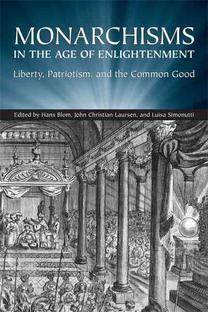 Front Cover
Front Cover about the Enlightenment which
emphasizes the growth and
development of republicanism to
the near exclusion of all other
political theories emerging during
this period. This book attempts to
address this one-sided narrative by
examining how monarchists were
adapting their ideas to the trials of
the age. It does so by examining a
cross-section of monarchist
thought from the period.
thinkers (although in a few cases it is unclear whether the
writers were monarchists or simply did not reject monarchy
as a viable system). The scholars covered are; Benedictus de
Spinoza, Pierre Bayle, David Hume, François Fénelon,
Edmund Burke, Montesquieu, Giambattista Vico, Étienne
Bonnot de Condillac, David Hartley, Bishop Thomas Newton,
Manuel Lacunza, Andre Roger, Samuel Pufendorf, Jens
Schielderup Sneedorff, Tyge Rothe, Paul-Henri Mallet, Henry
Fielding, Friedrich Nicolai, Thomasius, Johann Christoph
Woellner, Ernst Ferdinand Klein, & Johann August Eberhard.
If many of those names are unfamiliar to you I would not be
surprised. This is not an entry level text, both in subject
matter and writing style. Each section is an essay written by
a different academic. As such it is both wonderfully sourced
and a tad dry at times.
Themes include the the proper role of the monarch, aspects
of the ideal constitution, what government leads to a well-
ordered state, and other issues.
As a source for gaining insight into the evolution and diversity
of monarchism in the past it is useful. But if you are looking
for something to use in modern arguments to support
monarchy you will be disappointed. But since this isn't the
book's stated aim perhaps I am expecting too much.
Loyally Yours,
A Kisaragi Colour
 RSS Feed
RSS Feed





